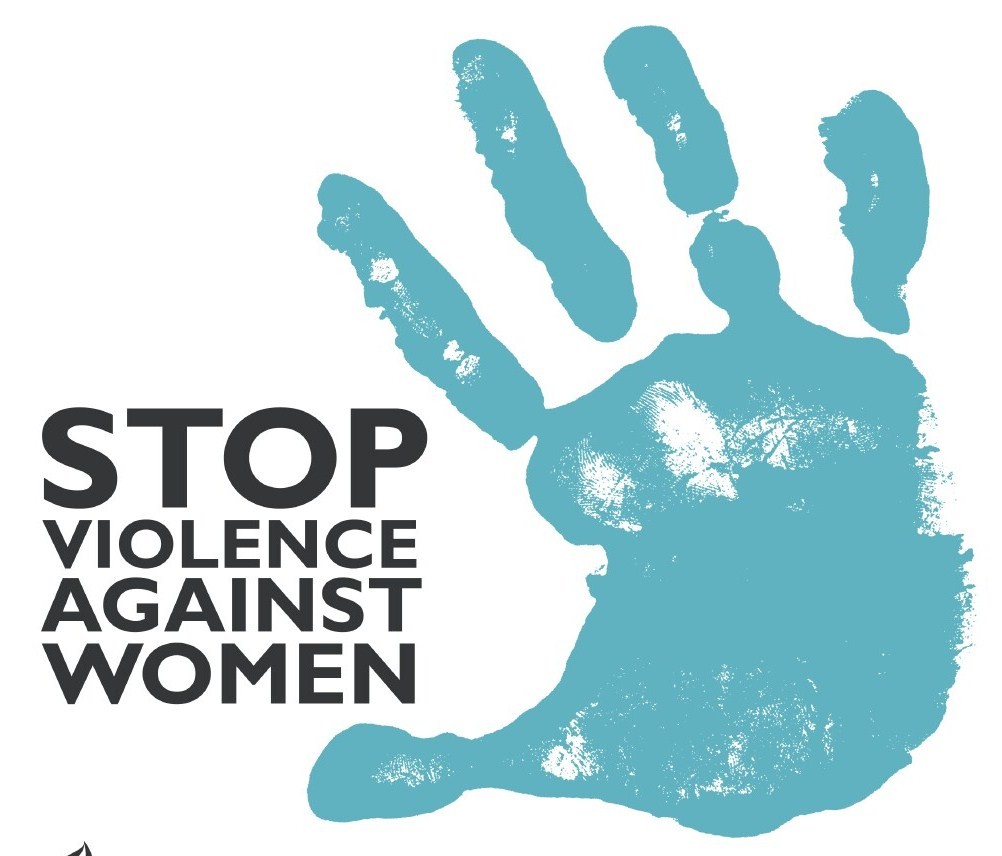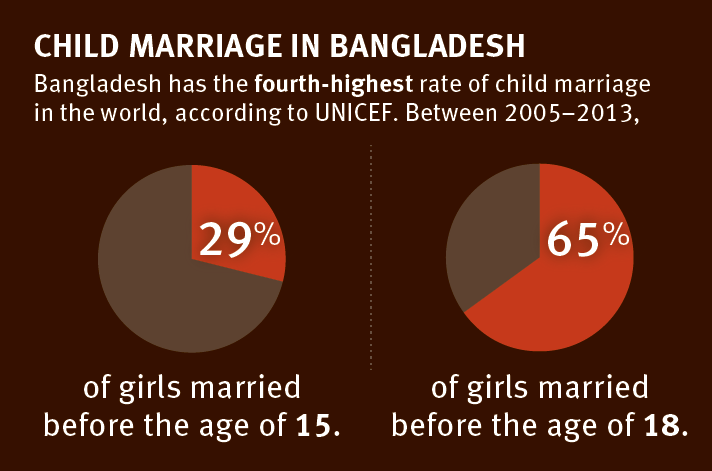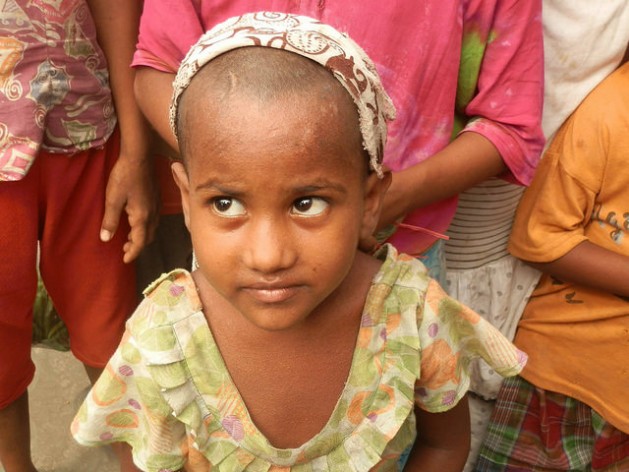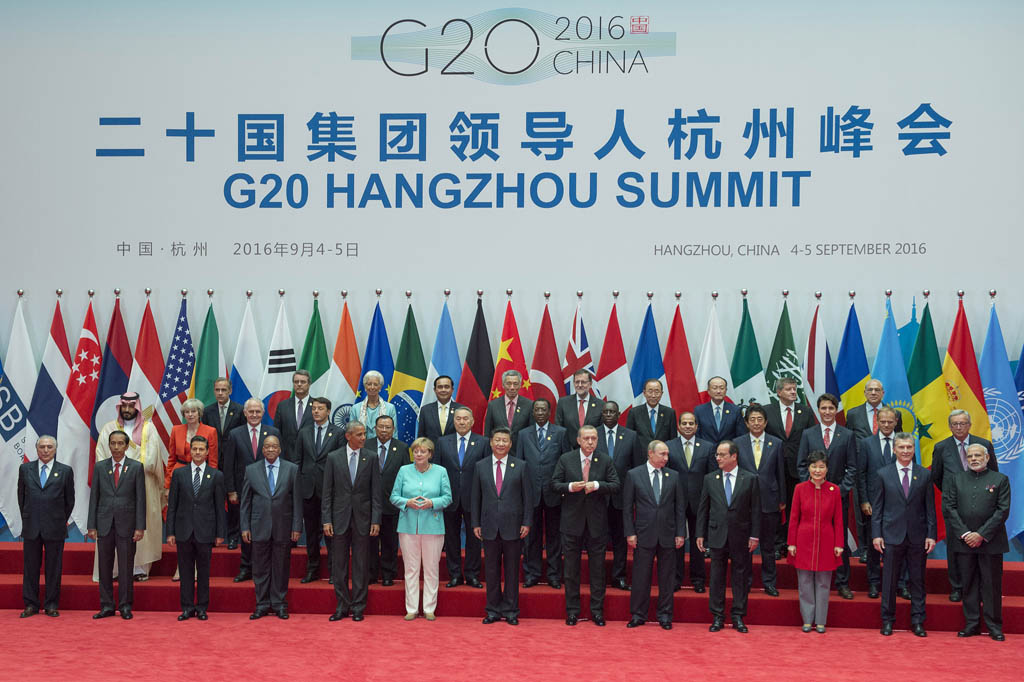
80 Percent Bangladeshi Married Women Abused by Husbands

Eighty percent of married women in Bangladesh are abused physically, mentally, sexually oreconomically at some point in their lives by their husbands, says a new government report.
The ‘Report on Violence against Women (VAW) Survey 2015’ by the Bangladesh Bureau of Statistics (BBS) has found that 50 percent of the women said they were physically tortured while 27 percent said they had been sexually abused.
BBS official Jahidul Hoque Sarder said at the launch of the report on Sunday that the study was based on interviews of 21,688 women between Aug 13 and 22 last year.
Compared with the figures for 2011, he said that the rate of sexual abuse of married women came down, but in cases of physical torture, it had gone up. The study says it found that in 15 percent of the cases men abused their wives in efforts to control their behaviour.
- Women aged between 15 and 34 are at the greatest threat of facing torture.
- 8 percent of rural women said they had been abused. The rate is 48.5 and 49.6 percent at the urban and national levels respectively.
- Little difference was found between the ratios of economic exploitation faced by rural and urban married women. In the case of rural women it was 12 percent while in urban areas it was 10.2 percent.
- The study shows that the tendency of abusing wives is found less among educated couples.
Planning Minister AHM Mustafa Kamal was the chief guest at the event. “Violence against women is a global problem. It cannot be stopped at once but can be reduced significantly,” he said. According to him, one out of every three women are tortured in neighbouring India. “Bangladesh is in a better state compared to that. But we have the scope to do better,” said Minister Kamal.
State Minister for Women and Children Affairs Meher Afroze said: “Violence against women must stop in order to empower them.” She claimed that the rate of violence against women had declined due to various government initiatives. “However, a number of challenges are still there,” she added. UNFPA representative in Bangladesh, Argentina P Metavel, and European Union Ambassador, Pierre Mayaudon, were also present. Source: bdnews24.com

Ending Child Marriage : Building the evidence base

By Yoriko Yasukawa & Jean Gough
Rekha (not her real name), who lives in the Rangpur Division of Bangladesh, got married when she was just 13 years old – “just after my first menstruation”, as she recalls. A year later the 14-year-old had a child of her own, joining the ranks of the thousands upon thousands of adolescent mothers in a country where child marriage remains widespread, even though the legal age of marriage is 18 for females and 21 for males.
Rekha’s story is far from unusual. Almost one in two girls in South Asia – in countries including Bangladesh, India and Nepal – will marry before turning 18, and one in six will marry before the age of 15, if current rates continue. While the practice of child marriage has declined in South Asia over time, it nevertheless remains far too high. Child marriage is a practice that primarily affects girls but boys too. While a much smaller number of boys are married as children, there are also child grooms in the region, who marry even younger child brides.
For literally millions of girls like Rekha, child marriage violates their human rights. It threatens their lives and health, as well as their future prospects, exposing them to early pregnancy, and increasing their vulnerability to exploitation and abuse. Child marriage, quite simply, robs them of their future.
As the evidence shows, girls who marry young often become pregnant while they are still adolescents, putting them at risk of complications in pregnancy or childbirth – complications that are a leading cause of death among older adolescents in developing countries.
They are also more likely to experience violence, including sexual violence, than girls who marry over the age of 18, and to be more exposed to sexually transmitted diseases and HIV.
When they marry, girls are often forced to drop out of school so they can assume household responsibilities, denying their right to complete their education. Child marriage limits their opportunities including their job prospects, and has long term effects on their families.
It also has negative impacts on their children. A recent global study in five middle-income countries shows that children born to mothers 19 years or younger have a 20-30 percent increased risk of low birth weight and pre-term birth compared to mothers aged 20-24 years. Moreover, they have a 30-40 percent increased risk of stunting and failure to complete secondary schooling.
While many countries in South Asia have laws in place to prevent child marriage, the practice persists. Often, at the state and community level, traditional and customary laws still allow girls younger than 18 to marry with the consent of parents and other authorities. Unequal power relations between men and women, women’s and girls’ restricted rights and opportunities, and norms which place a higher value on sons than daughters reinforce the practice. And, not surprisingly, vulnerability to child marriage increases during crises when family and social structures are disrupted – for example when families are separated during natural disasters or conflicts, or when they are faced with economic hardships that prompt parents to marry off their underage daughters.
Countries around the world have committed to “Eliminate all harmful practices such as child, early and forced marriage, and female genital mutilation” in the Sustainable Development Goals (SDGs) that underpin the 2030 Agenda whose central pledge is to leave no one behind.
UNFPA and UNICEF are working together to end child marriage through a multi-country initiative to prevent children, from marrying too young, and support those already married. In partnership with governments in South Asia, we are implementing proven strategies for change: keeping children – especially girls – in school, increasing their access to health care, educating their parents and communities, increasing economic support to families, and putting in place and enforcing legislation. Just this week, our agencies are hosting a meeting of experts from South Asia and around the world to share and build the evidence base for change.
Strong partnerships at all levels are required to end child marriage. The scale of the problem requires all of us – governments, local actors, the global community and the United Nations – to act together to end child marriage. All of us need to join hands to give back to children, particularly girls like Rekha, their choices, their dreams, their futures – and their childhoods.
The writers are Asia-Pacific Regional Director, United Nations Population Fund (UNFPA), and South Asia Regional Director, United Nations Children Fund (UNICEF), respectively.
Source: The Daily Star

Myanmar Turns to Kofi Annan for Help on Festering Rohingya Crisis
A top official in Suu Kyi’s party was reported by local media as saying that “Mr Annan is influential in international politics, and we need his support to steer a real peace in this country.”
By Sara Perria
YANGON/LONDON (IPS) – Myanmar’s government has responded to pressure from the international community to tackle religious tensions and persecution of Muslims in Rakhine State by appointing former U.N. secretary general Kofi Annan to head a commission to advise on “a sustainable solution” to the crisis.
The northwest region bordering Bangladesh has been under close scrutiny from western governments and some U.N. agencies since clashes erupted in 2012 between the Buddhist Arakan community and the mostly stateless Muslim minority.
“It’s good that Kofi Annan is involved…, but there is also the risk that it becomes a window-dressing for the NLD to buy time and avoid international criticism.” — Chris Lewa, director of the Arakan Project
The violence, in which extremist monks are accused by human rights observers of playing a role, resulted in over 200 deaths, mostly Muslims. Since then, more than 100,000 Rohingya Muslims have been confined in IDP camps or ghettos. Access to medical treatment, education and jobs are so heavily compromised that thousands from the community have undertaken the risky journey to nearby southeast Asian countries, at the hands of human traffickers.
A 2015 boat people crisis laid bare the existence of mass graves near the border between Thailand and Malaysia, triggering a worldwide call for action to end the Rohingya persecution.
“The Myanmar government wants to find a sustainable solution to the complicated issues in Rakhine State, that’s why it has formed an advisory commission,” the office of Aung San Suu Kyi, the de facto head of government, said in a statement announcing Annan’s appointment on Aug. 24.
The Nobel peace laureate, who scored a landslide election victory in November 2015 and took office nearly five months ago, has until recently attracted criticism from outside Myanmar for her reluctance to address openly the issue. Fellow Nobel laureates, including the Dalai Lama, were notably critical last year.
Even as leader of the opposition to the previous military-backed government, Suu Kyi was accused of not speaking out for the 1.1 million Rohingya minority despite her status of human rights icon following 15 years under house arrest.
Her supporters point to the sensitivity of the issue and the risk of triggering further conflicts to justify what others call a dismissive attitude at best. Suu Kyi did however repeatedly call for a quick and transparent solution to the Muslim minority’s lack of status, which has dragged on since 1982 when the military junta under Ne Win stripped many of their citizenship.
The National League for Democracy leader explicitly avoids using the word Rohingya, a controversial term of some historic dispute which triggers fierce responses from nationalist politicians of the Arakan majority who form the largest bloc in the Rakhine State parliament.
In May, the Myanmar government advised foreign embassies, including the US, not to use the term. However at a later meeting with US Secretary of State John Kerry, Suu Kyi also said that she would avoid using the term Bengali, adopted by the previous government and rejected by the Rohingya, as it identifies them as illegal migrants from neighbouring Bangladesh, rather than long-term residents.
A statement by the Kofi Annan Foundation in Geneva also chose not to use the term Rohingya.
“I am pleased to support the national efforts to promote peace, reconciliation and development in Rakhine,” Annan said. “I look forward to listening to the leaders and people of Rakhine and to working with the State and central authorities to ensure a more secure and prosperous future for all.”
The statement says the overall objective of the commission, assisted by the Kofi Annan Foundation, is “to provide recommendations on the complex challenges facing Rakhine.”
The commission is to “initiate a dialogue with political and community leaders in Rakhine with the aim of proposing measures to improve the well-being of all the people of the State.”
These will contemplate “humanitarian and developmental issues, access to basic services, the assurance of basic rights, and the security of the people of Rakhine”.
The final report and recommendation will be submitted next year directly to the Myanmar government.
The commission is to meet for the first time next month. It also includes former U.N. adviser Ghassan Salamé, Dutch diplomat Laetitia van den Assum, and representatives of the Myanmar Red Cross Society and human rights and religious groups.
A top official in Suu Kyi’s party was reported by local media as saying that “Mr Annan is influential in international politics, and we need his support to steer a real peace in this country.”
“We need his advice, whether he’s a foreigner or not,” he added.
However, the choice has already hit raw nerves.
According to Eleven Myanmar, a local newspaper, the move has sparked anger from the Arakan National Party.
“We cannot accept these developments only after internal issues have been made an international issue,” said ANP chairman Aye Maung. “If tax revenue could be derived from the natural resources in our state within the framework of rights and privileges of our own people, we want to try to develop our region in cooperation with the global community. I don’t accept that the State can develop only after flattering the international community.”
Reaction on social media to Annan’s statement highlighted a harsh debate over which community in Rakhine should be helped, reflecting in some cases the view of extremist Buddhist movements such as 969, which is driven by Ashin Wirathu, a prominent Mandalay-based monk, and the nationalist Ma Ba Tha – the Organisation for the Protection of Race and Religion.
These groups have in the past years exacerbated tensions, calling for the defence of the country against foreign influence and organising rallies in Yangon, Myanmar’s biggest city. Wirathu, who has a large following on Facebook, has repeatedly stressed how Islam is penetrating the country, threatening the existence of the Rakhine majority.
Such nationalist messages have resonated across Myanmar, with some 90 per cent of the population estimated to be Buddhist. Muslims, who come from various ethnic backgrounds and are not all Rohingya, are estimated to make up about one third of Rakhine’s 3 million people. The state is one of the poorest in Myanmar.
One of the first challenges for the newly established commission will be how to balance the urgent need to find a solution to the desperate situation in which the Rohingya have been forced and an improvement in living conditions for the general Rakhine population.
This balancing of human rights and development issues have been at the heart of a debate raging within the United Nations which has yet to be resolved.
According to a non-profit CDA Collaborative Learning Projects report on conflict sensitivity by Gabrielle Aron, a concentration of humanitarian help since the 1990s within the Muslim areas of Rakhine State has led to the perception of an imbalance in aid disadvantaging ethnic Rakhines. As a result, international intervention has evolved into a trigger for ethnic tensions.
Related IPS Articles
- Myanmar’s Rohingya Humanitarian Crisis
- Rohingya Crisis: Politics of Denial
- Myanmar Report on Anti-Rohingya Violence Skewed Toward Security
For Suu Kyi’s government, which is in effect sharing power with the military, the thorniest issue will be how to grant some form of citizenship to the Rohingya community that will allow them greater integration with Myanmar as a whole without antagonizing Buddhist nationalists. Meanwhile military leaders casting themselves as protectors of Myanmar’s Buddhist identity are sticking with the term Bengali and have taken a tough line on citizenship.
While the establishment of the commission is seen by many as a positive step, Chris Lewa, director of the Arakan Project and a respected expert on the conflict in Rakhine, says it leaves many questions open, starting with its unclear mandate.
“Other reports have already come out with ‘recommendations’. But what is needed now is action, and the implementation of what has already been recommended so far in terms of freedom of movement and access to healthcare, for example,” she tells IPS. Lewa is also sceptical about the timeframe, arguing that one year is far too long to come out with suggestions on how to solve the situation.
“I am a bit worried that the commission will not be meaningful. It’s good that Kofi Annan is involved to raise the profile of the mandate, but there is also the risk that it becomes a window-dressing for the NLD to buy time and avoid international criticism,” Lewa says.
Meanwhile the situation in Rakhine and in the camps has not changed much since the NLD has taken over from the military-backed government. Conditions inside the camps are miserable, with temporary bamboo houses now falling apart and too old to offer acceptable living conditions.
Most importantly, the key issue of freedom of movement to allow access to healthcare has not been tackled. “The central government has to take action to end this situation. They need to find a way and force the Rakhine to accept the Rohingya,” she says.
The Arakan Project director, however, also highlights a number of small positive steps undertaken by Suu Kyi, such as the rejection of the term ‘Bengali’.
Tun Khin, president of the Burmese Rohingya Organisation UK, points to the lack of Rohingya representation within the newly-established commission as its main limitation: “We welcome the commission, but it is quite disappointing that the Rohingya are not included in it,” he tells IPS.
“We want to know how they will consult with the Rohingya community… We are also worried about how the government will act following the recommendations [next year]. People cannot wait for food,” he says.
Link; http://www.ipsnews.net/2016/08/myanmar-turns-to-kofi-annan-for-help-on-festering-rohingya-crisis/

Local newspapers are playing effective role to promote democracy and human rights but they are in deep crises
In a day-long meeting  editors and publishers said that the most newspapers published from remote districts are in deep crisis. To overcome the situation need financial and technical support to maintain its quality. Meeting was held on 31 August 2016 at Habigonj town, a northeastern district headquarter of Bangladesh. The editors also mentioned that the violation of human rights became a regular practice in this region.
editors and publishers said that the most newspapers published from remote districts are in deep crisis. To overcome the situation need financial and technical support to maintain its quality. Meeting was held on 31 August 2016 at Habigonj town, a northeastern district headquarter of Bangladesh. The editors also mentioned that the violation of human rights became a regular practice in this region.

Poor are the worst victim of it. Many serious incidents kept unreported. ‘Due to lack of resources there are always shortage of staff so, we can’t cover all the incidents,’ said Shameen Ahsan, Editor of the Daily Khowai.
The editors have demanded government subsidy and fair distribution of public advertisements for healthy growth of local newspapers. Many of them are now planning to go for internet version but they need technical support.

Proposed cyber-security bill threatens media freedom in Bangladesh
Bangkok, August 24, 2016–The Committee to Protect Journalists called today on Bangladesh’s legislature to scrap proposed cyber-security legislation that would impose severe penalties for disseminating online material deemed to be anti-state or a threat to national security or public order. The Digital Security Act 2016 was approved on August 22 by Prime Minister Sheikh Hasina’s Cabinet and is pending in parliament, according to news reports.
If passed into law, the bill will enable the creation of a new agency charged with monitoring for violations, including the use of electronic media to “carry out propaganda,” “hurt religious sentiments,” or “create enmity and disturb law and order,” news reports said. Maximum penalties would include life in prison for spreading false information about the country’s 1971 war of liberation from Pakistan or about national founder Sheikh Mujibur Rahman; seven years for disturbing public order; and two years for defamation or harming religious sensitivities, the reports said. CPJ was unable to determine when parliament is scheduled to vote on the proposed bill.
Cabinet Secretary Mohammad Shaiful Alam told reporters the bill would replace four sections of the 2013 Information and Communication Technology (amendment) Act to curb cyber terrorism and other cyber-crimes that cause financial and administrative damage to the country. He said the proposed law would impose a maximum 14-year prison sentence for crimes deemed as “cyber-terrorism.” The law would also allow for two-year jail sentences for disseminating state secrets via computers, mobile phones, or other digital devices, reports said.
Cybercrime laws intended to extend penal codes to the online world can too easily be broadened to criminalize the standard practices of online journalists, CPJ has found. While publicly justified as a means of preventing terrorism or promoting stability, the laws are also used to restrict information critical of or embarrassing to authorities.
“Proposed cyber-crime legislation, if passed, would have a stifling effect on media freedom in Bangladesh,” said Shawn Crispin, CPJ’s senior Southeast Asia representative. “The draft law’s language dangerously conflates cyber-crime with fair critical comment. We strongly urge parliament to reject the bill and ensure that any future version includes clearly defined press freedom and freedom of expression guarantees.”
The restrictive legislation comes amid rising threats to Bangladeshi journalists, CPJ research shows. Three journalists with the local banglamail24 news website face a potential 14 years in prison for publishing a report that refuted rumors that Prime Minister Hasina’s son, Sajeeb Wazed Joy, had been killed in a plane crash. The charges, filed this month, stem from a provision in the Information and Communication Technology Act that criminalizes the publication of material online that is “fake and obscene” or threatens “law and order.”
The legislation’s penalties for covering religious issues threatens to worsen conditions for secular reporters in the country. Five journalists were murdered by apparent Islamic extremists in 2015, and Bangladesh ranks 12th on CPJ’s Impunity Index, a global measure of countries where journalists are slain and the killers go free. The research found that Prime Minister Hasina and her nominally secular ruling Awami League party have “done little to speak out for justice in these crimes.”
Link: https://cpj.org/2016/08/proposed-cyber-security-bill-threatens-media-freed.php

Journalist Exchange Programme
Journalism Exchange Program gives journalism students and young journalists with up to 5 years experience a chance to improve their journalistic skills and acquire new professional experience by working in the best newsrooms around the country. Please note, that the internship can only take place in the city where one neither lived or studied. The selection is carried out on a competitive basis.
We offer:
1. A paid (two weeks to two months long) internship in the newsroom of a TV, radio, online or print media outlet.
2. A unique experience of living and working in a new city and region, interesting contacts and meetings.
3. Trainings and workshops from best Ukrainian and foreign media experts, prominent journalists and editors.
4. Flexible terms of participation in the program.
The program was first launched in August 2014. More than 50 young journalists have already completed their internships in various regions of Ukraine. And 12 of our colleagues are working in over a dozen newsrooms around the country right now.
Perhaps, you are the next stipend winner.
Attention! If you want to participate in the program:
– in September-October – fill in the application form till August 20, 2016,
– in November-December – fill in the application form till October 20, 2016.
You will be notified about the contest results by email within 7-10 days after the deadline.
To get a link to the application form please write to us at mdfoundation2014@gmail.com.
More to click; http://jep.com.ua/programa-en.html

Aspiring filmmakers, this is your chance to go on assignment to capture the vibrant communities of Vietnam!

All these prizes could be yours;
10-day all-expenses-paid trip in Vietnam
We’ll fly you to Hanoi to capture the culture and the communities of northern-Vietnam with professional travel filmmaker Brian Rapsey.
3-day post-production workshop
Once you’ve filmed your story you’ll continue your mentorship with Brian with a 3-day workshop in Hanoi where you will edit and polish your travel film.
Røde Microphones gear
Our friends at Røde Microphones will provide the winner with a Video Mic Pro, RØDELink Wireless Filmmaker Kit, and VideoMic Me™ iPhone directional mic.
Lonely Planet’s Best Ever Video Tips
This collection of tips from film-industry insiders will help you to shoot and share better travel videos. PLUS – Our talented shortlisted applicants receive a copy too!
You’re insured
As always, we’ve got your back. You’ll receive travel insurance for the duration of your trip from World Nomads.
Crumpler gear
Travel in style with awesome bags from our friends at Crumpler, designed for creative and adventurous travellers.
More to click; https://www.worldnomads.com/learn/travel-film/scholarship/2016/

2016 Call For Entries 37th Global Media Awards
The Population Institute is an international, educational, non – profit organization that seeks to voluntarily reduce excessive population growth, through universal access to family planning information, education, and services. We strive to achieve a world population inbalance with a healthy global environment and resource base. Established in 1969, the Institute, with supporters in 172 countries, is headquartered on Capitol Hill in Washington, DC. Please visit; Http://www.populationinstitute.org
Call for Award; https://www.populationinstitute.org/external/call_for_entries.pdf

Jobs at International Center for Journalists (ICFJ)
ICFJ is an equal opportunity employer and is committed to promoting a diverse and international workplace. We offer a competitive benefits package, which includes health and dental plans, partial tuition reimbursement, and generous annual leave.
Internships
Program Technology Support Intern
ICFJ has an opportunity for a part-time (10-20 hrs/wk) intern to develop web and data solutions to support international journalism programs, working closely with program management and the Director of Innovation. We are looking for a creative, curious person to work on rapid prototypes and solution development using free and low-cost tools such as Google Apps script, GitHub Pages, and cloud-based database solutions. Learn more about the position here.
Open Positions
- ICFJ is seeking short-term consultants for its “Meeting the Challenge: Strengthening societies and governance through journalism and citizen engagement” project. Read more

The G20 Embraces Green Finance
BEIJING – The G20’s finance ministers and central-bank governors have begun to undertake a stunning shift in mindset. They have become increasingly convinced that “green finance” – financing environmentally sustainable growth – should be at the center of economic-development strategies. Such an idea, until recently confined to a fringe of academics and policymakers, is potentially one of the most important new “truths” of the twenty-first century.
The conventional economic-development model viewed environmental protection as a “luxury good” that societies could afford only after they became rich. Such thinking explains why the dramatic growth in global income, 80-fold in real terms during the last century, has been accompanied by a decline, according to the United Nations Environment Programme, in natural capital in 127 of 140 countries.
But natural capital is not just an abstract concept; it supports lives, livelihoods, and societal wellbeing. The environmental destruction that our activities are wreaking – greenhouse-gas emissions add energy to the Earth system at a rate equivalent to the detonation of four nuclear bombs every second – has concrete consequences, which are already being borne by millions of people.
Since 2008, an average of 26.4 million people have been displaced from their homes by natural disasters each year – equivalent to almost one person every second. One-third of the world’s arable land is now jeopardized by land degradation, which causes economic losses of $6.3-10.6 trillion per year. And 21 of the world’s 37 largest aquifers have passed their sustainability tipping point.
The downsides of the conventional approach to economic development, which favors income and employment over environmental protection, are particularly apparent in China. By some measures – in particular, per capita income and GDP growth – China’s development process has been an extraordinary success. But it has also brought lethal levels of air pollution and extensive contamination and depletion of land and water.
The good news is that Chinese leaders now seem to recognize that they must safeguard the environment before China achieves high-income status. Indeed, they have moved to the forefront of the green-finance movement.
To be sure, the challenge facing China is monumental. Success will require an estimated $600 billion in investment each year, in areas including environmental remediation and protection, renewable energies and energy efficiency, and sustainable transportation systems. Given that less than 15% of that finance will come from public sources, China will also have to retool its financial system to support private investment.
But China is already taking concrete steps in the right direction. On August 30, President Xi Jinping presided over a decision by the Central Leading Group for Comprehensively Deepening Reforms to transform China’s financial system to facilitate green investment. The so-called “guidelines for establishing a green finance system” adopted at the meeting represent the world’s first attempt at an integrated policy package to promote an ambitious shift toward a green economy.
More to click; https://www.project-syndicate.org/commentary/g20-embraces-green-finance-by-ma-jun-and-simon-zadek-2016-09
